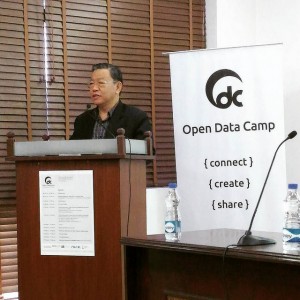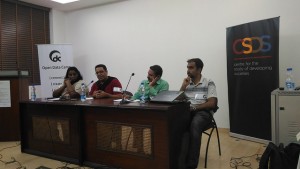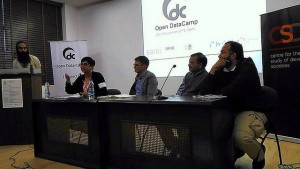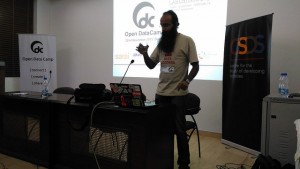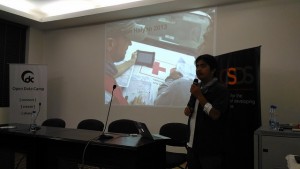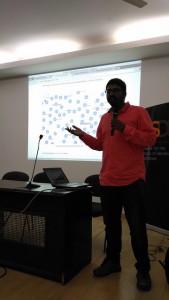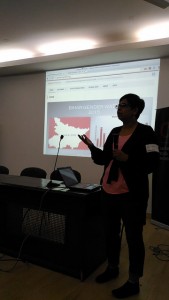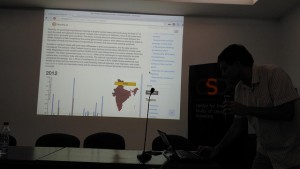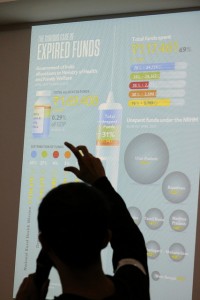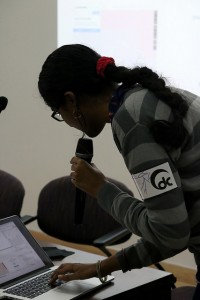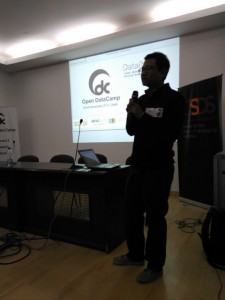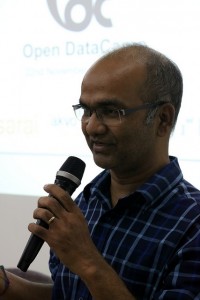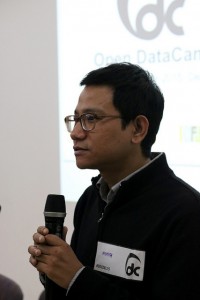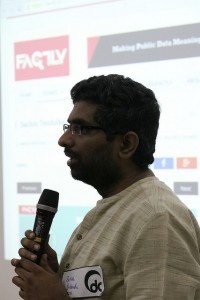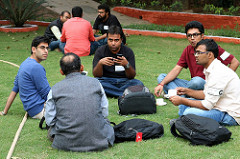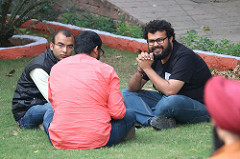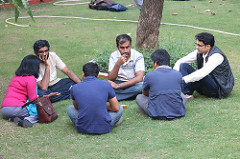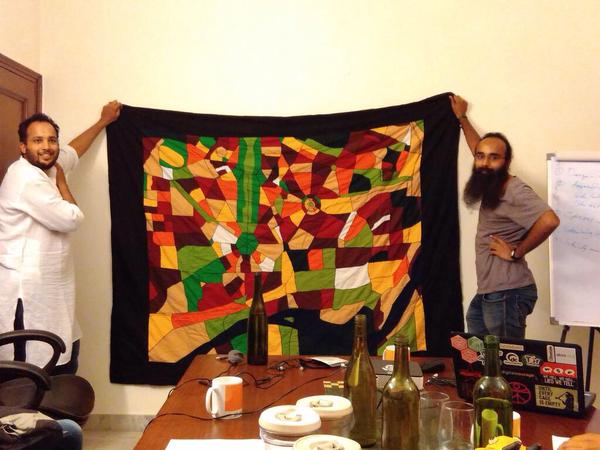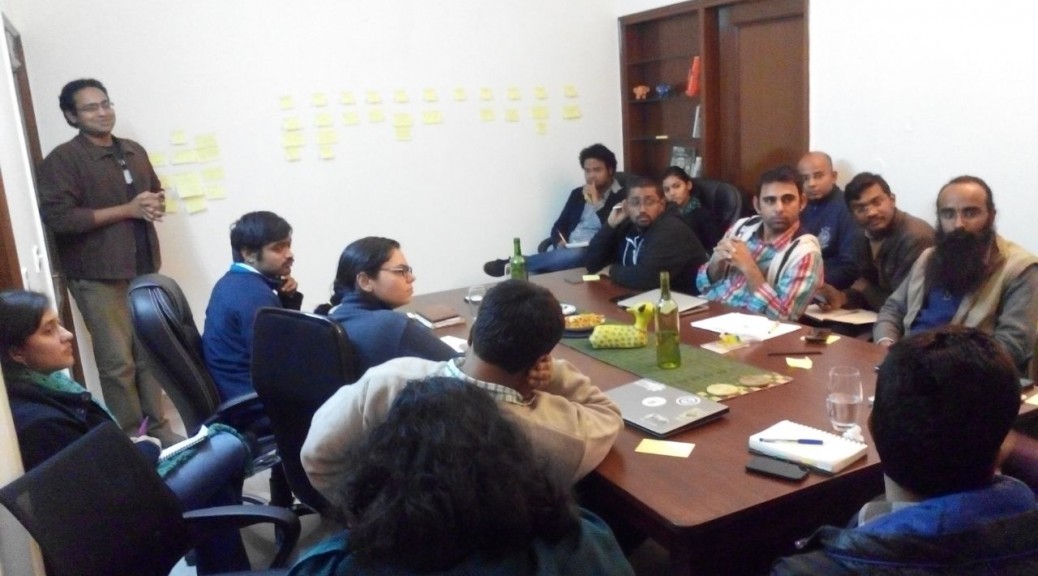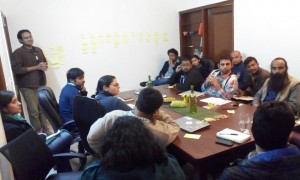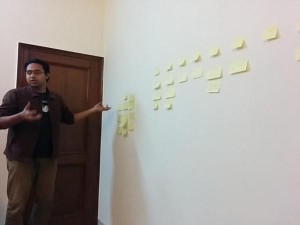Last Thursday DataMeet was lucky to be invited to a Pre Budget Consultation with the Finance Minister Arun Jaitley. We were invited to attend with the IT sector group and give some suggestions on how the next budget could invest in open data.
After some consulting with the various city chapter organizers we came up with some recommendations that could appeal to this audience. We decided to emphasize that government data is a financial asset that needed to be invested in, in order for it to reach its optimal economic impact. A stance the US government made in it’s open data policy.
You can read the note we submitted here:
The meeting was Thursday morning in Delhi at the Finance Ministry offices, Sumandro came to represent CIS and I attended to represent DataMeet.
The Finance Minister was there along with the Secretaries;
Shri R.N. Watal, Finance Secretary, Shri Shaktikanta Das, Secretary, DEA, Dr. Hasmukh Adhia, Revenue Secretary, Ms Anjuli Chib Duggal, Secretary, Financial Services and Dr. Arvind Subramanian, Chief Economic Adviser (CEA).
It was a round table and the participants were organized by software and hardware, and we presented in the order we were seated.
- Shri Ramadas Kamath, Infosys,
- Shri P.V.Srinivasan, WIPRO,
- Shri Anil Chanana, CFO, HCL,
- Shri Pauroos D Karkaria,TCS,
- Shri R. Chandrashekhar, Chief Economist, NASSCOM,
- Ms Nisha Tompson, Founder, Datameet,
- Shri Vinod Sharma, Chairman, Electronics and Computer Software Export Promotion Council,
- Shri Nitin Kunkolienker, Vice President, Manufactures Association for Information Technology (IT),
- Shri Rajoo Goel, ELCINA Electronic Industries Association of India,
- Shri Hari Om Rai, Co-Chairman Task Force on Mobile Phone Manufacturing,
- Shri Suraj Saharan Ajit Pai, COO,Delhivery,
- Shri Sumandro, the Centre for Internet & Society and
- Shri Vikas Jain, Member, Task Force on Mobile Phone Manufacturing
While most of the suggestions were related to tax breaks, subsidies, and trade issues, I was able to introduce the idea that the Government of India’s data is an economic asset that can help create markets, increase innovation, and allow for more accountability in scheme implementation. In order for the data to do these things it has to be opened up and that means the government must invest in the NDSAP policy and focus on data standardization, cleanup, and collection. Also policies need to be reviewed and revamped in order to keep up with demand and use of data. Like the mapping policy should allow for more contributions from private sources and crowdsourcing so the Survey of India can keep up with demand for geospatial information. The Copyright Act also needs a clarification on the status of data and the Ministries must be willing to release data under open licenses.
In all the meeting was short, with the main focus being toward how to encourage manufacturing sectors because of the Make in India initiative. I was happy to be there and mention ideas and concepts that were not being discussed in rooms like that one and to also offer a perspective on open data.
We hope to keep in touch with the Ministry and continue to take advantage of any opportunity to share our experiences and views on how an investment in data can be a huge economic asset to India.
You can see the Government’s Press Release here.
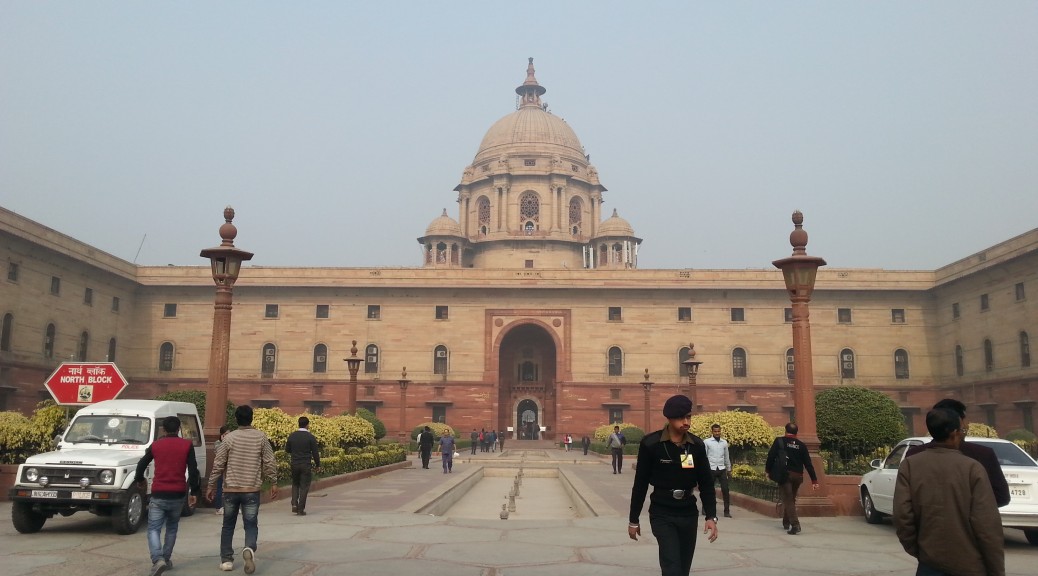
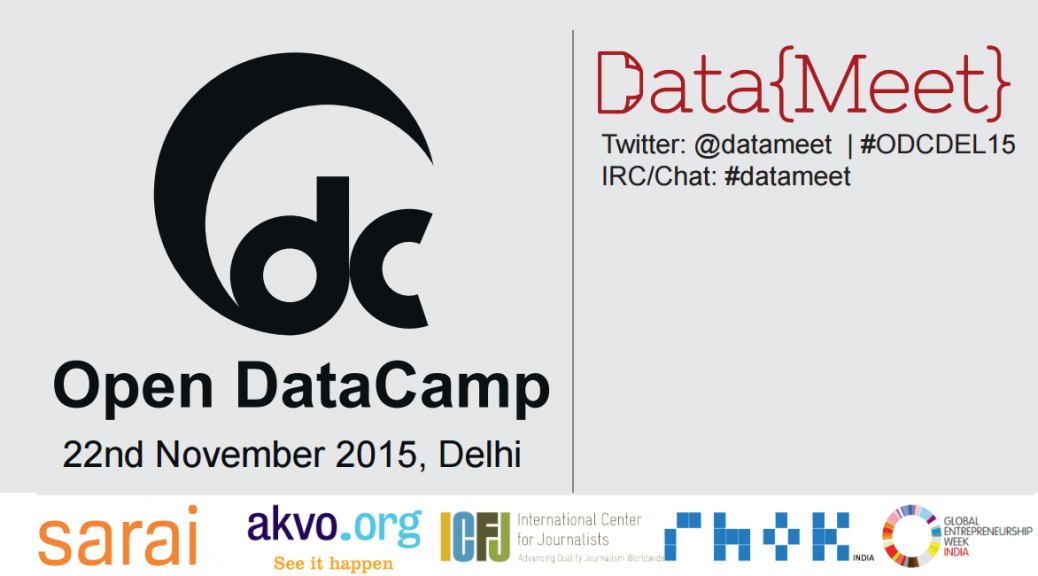
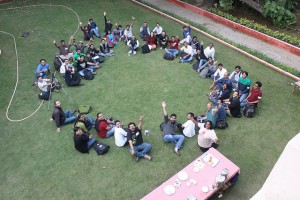 nday
nday 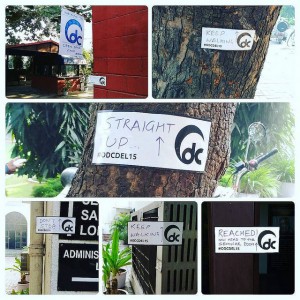 and comparable data, such as the
and comparable data, such as the 